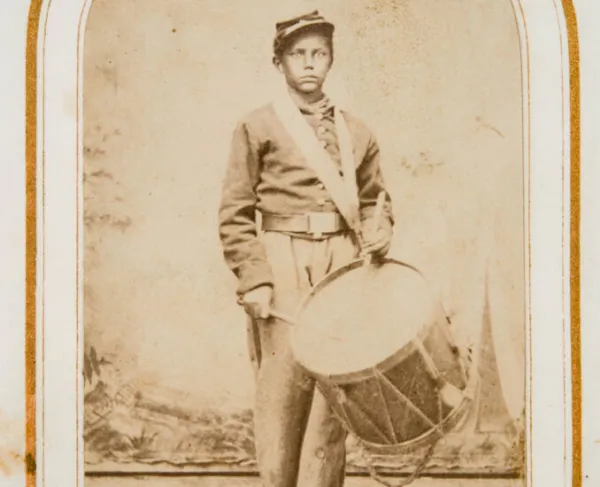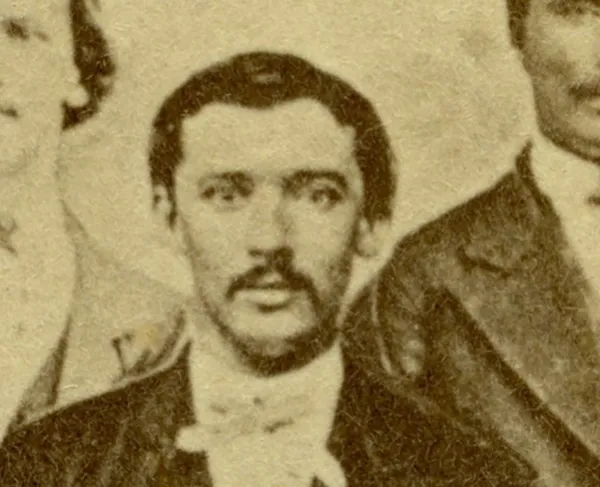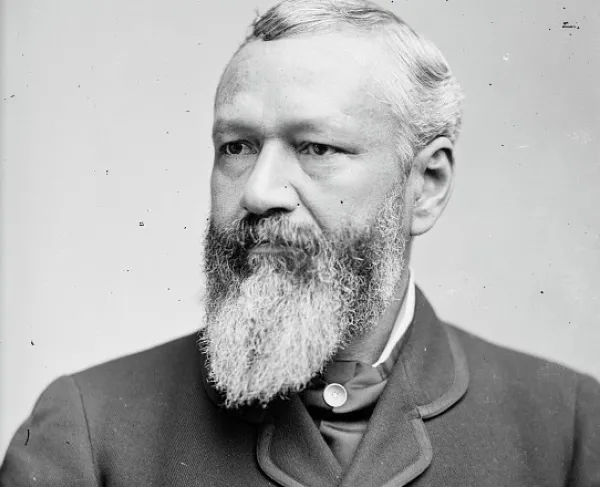Salem Poor

Salem Poor was born into slavery in Andover, Massachusetts, in 1747 and worked on the farm of John and Rebecca Poor. At 22 years old, he had saved enough money to purchase his freedom for 27 pounds, which equaled a working man’s annual earnings at that time. No record exists of how Poor was able to earn such a sum at his young age, but the most likely explanation is that John and Rebecca Poor paid him wages or he was able to work paid labor on top of his work on the farm.
By the early 1770s, the Revolutionary War was brewing and in 1774, Massachusetts began recruiting and establishing militia units frequently referred to as “minutemen.” Black volunteers were permitted to join and in early 1775, Salem Poor became one of them. He enlisted in the First Andover Company, serving under Captain James Frye’s regiment of Massachusetts Minutemen, and like other militia minutemen, was trained to respond at a minute's notice any British aggression.
That moment for Poor came just a few months later at the Battle of Bunker Hill: the battle where he would display his heroism. During the battle, Poor’s unit also included other African American minute men: Titus Coburn, Peter Salem, and Seymour Burr, who each showed their own heroism in this and other battles.
During the day of June 17, Poor’s unit arrived as a secondary force to work on fortifications. But things did not happen as planned. They ended up covering the retreating units that had constructed the redoubt on Breed’s Hill and had run out of ammunition. The Andover unit received heavy fire; the British Regular Army killed five Andover men near him on the spot and left another six seriously wounded. Poor slowed his own retreat in order to assist the wounded.
Legend has it that as Poor retreated, he slowed and fired one last shot at the British, killing British Army Lt. Col. James Abercrombie. This story would follow Poor and his legacy for many years, but research shows that Abercrombie most likely was hit by friendly fire. Still, Poor‘s actions during the battle drew the notice of his regimental commanders. That December, they petitioned the General Court of Massachusetts Bay Colony to recognize Poor’s exemplary service:
“To the Honorable General Court of the Massachusetts Bay: The subscribers beg leave to report to your Honorable House (which we do in justice to the character of so brave a man), that, under our own observation, we declare that a negro man, called Salem Poor, of Col. Frye’s regiment, Capt. Ames’ company, in the late battle at Charlestown [Massachusetts, where the Battle of Bunker Hill took place], behaved like an experienced officer, as well as an excellent soldier. To set forth particulars of his conduct would be tedious. We would beg leave to say, in the person of this said negro, centers a brave and gallant soldier. The reward due to so great and distinguished a character, we submit to the Congress.”
Unfortunately, the General Court never acted on the petition.
Poor stayed in the military, eventually enlisting in the Continental Army, through the entirety of the American Revolution. He served under Colonel Edward Wigglesworth’s 13th Massachusetts Regiment from mid-1777, meaning he fought in the Battle of White Plains in New York, served during the Saratoga Campaign, encamped for the winter at Valley Forge in Pennsylvania, and fought in the Battle of Monmouth, New Jersey.
Poor’s military service ended in 1780, when he returned home to Andover, Massachusetts. In his personal life, he married four times, three to free women of color. Not much is known about his wives except for their possible race and freedom status. In 1771, he married a free mixed-race woman named Nancy Parker, with whom he had a son. In 1780, he married Mary Twing, a free Black woman. In 1787, he supposedly married a white woman named Sarah Stevens, but not much is known about the marriage. His final marriage was around 1801, about a year before his death, to another free Black woman.
Despite Poor’s dedicated and recognized heroism in life, his later years were plagued with troubles. By 1793, he was a resident of the Boston Almshouse (a poorhouse). He was also jailed briefly in 1799 for “breach of peace”, though not much else is known about the charge. In 1802, at the age of fifty-five, Salem Poor died and was buried in Copps Hill Burying Ground in Boston, Massachusetts.





